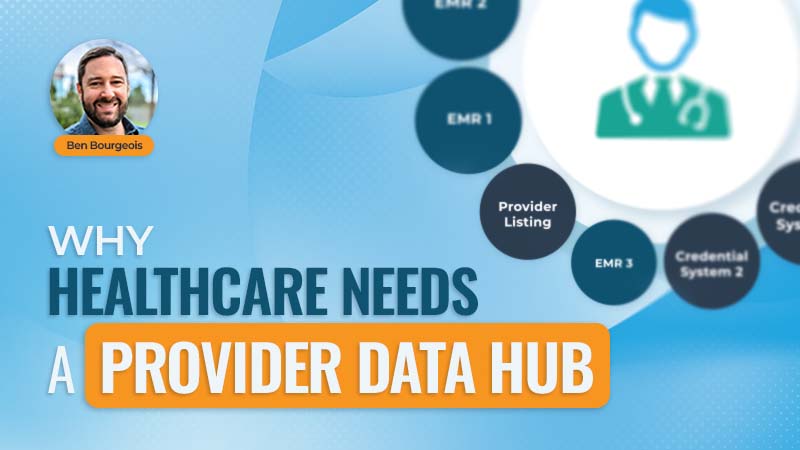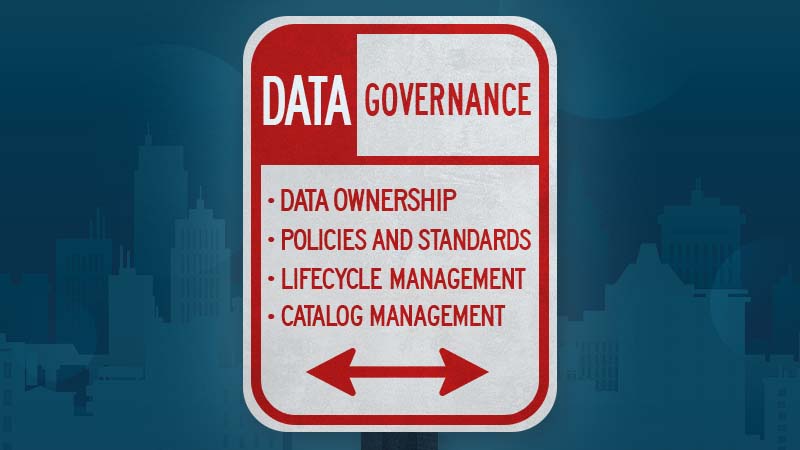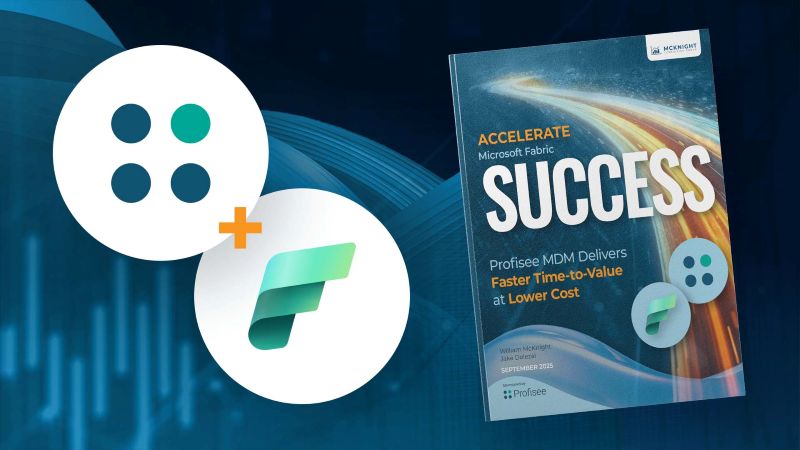When it comes to any successful master data management project, people matter.
Given that MDM is a relatively new function, most organizations aren’t sure what resources and roles need to be created or designated to make the solution successful. There are no one-size fits all organization structures for MDM. They will vary significantly based on the size of the organization, and their desired level of maturity for data management.
The following outlines the common roles and responsibilities that need to be filled regardless of organization size. For smaller organizations, one individual may fill multiple roles, while in large complex organizations, there may be an entire team filling a single role.
Within MDM, there are three common communities of stakeholders, with multiple roles within those communities. Those communities, roles, and responsibilities are:
Data Governance
this is a cross-functional group of stakeholders that define the policies, standards, and processes for data management. The output of their efforts represent the requirements for the implementation of the MDM solution. The governance function also holds the data stewardship team accountable. The following defines the high level roles within the governance team.
- Business Stakeholders – Representatives for the interests of business functions across the organization, such as finance, marketing, HR, etc. Ideally these are individuals in leadership or executive roles who can break down barriers and provide credence to the outputs of the governance function.
- Business Analysts – Like Business Stakeholders, are individual from across business functions, who do much of the legwork for the governance function, drafting the policies, standards, and processes for review and approval by the governance organizations.
- Information Technology Stakeholders – Representatives from IT, typically a subset of those in the roles listed below, who help align the policies, standards and processes to the chosen MDM platform, and provide a conduit for information back to the technical team.
Protip: Master Data Management Hub: Explore MDM strategy, quick wins, best practices, and more. Visit now.
Information Technology
these are leaders and technical resources in IT that install, configure, and maintain the data management solution. Some of these roles have dedicated resources, whereas others work on MDM on a part time basis.
- Solution Owner – The IT executive who owns the MDM solution from an IT perspective. This individual typically manages the technical resources who are dedicated to MDM, and often owns the relationship with the software vendor. The solution owner is typically an IT representative for governance.
- Project Manager – Responsible for managing the day to day activities for the project team.
- MDM Administrator – These are the experts at configuring the MDM platform itself, from data modeling, business rules, to the front-end user experience. At larger organizations, these resources are often dedicated to MDM on a full-time basis.
- Information Architect: This person is a conduit between IT and the business to help design the data models and processes that will be implemented using the MDM platform.
- Integration Developer – Technical resources focused on the integration of the data management solution with other applications in the enterprise and/or the data warehouse. These are often technologists specialized in the organizations preferred ETL or EAI platform.
- System/Database Administrator – In the event the platform is deployed on premise, these resources manage the servers and infrastructure for the solution. For cloud based deployments, these would be the resources that provision and manage the could environment.
Data Stewards
these are your business resources from Finance, Marketing, Sales, Operations, etc… – they are hands on subject matter experts and are tasked with the actual management of data. They know and care about the data and its quality. They will be the resources with the capability to fix, clean and manage data initially and on an ongoing basis.
Interested in learning more? Download a full copy of the article below.

Eric Melcher
Eric has spent the entirety of his 15+ year career working in the enterprise information management space. As Chief Technology Officer, Eric is responsible for all aspects of product management, development and support for Profisee’s software portfolio.











